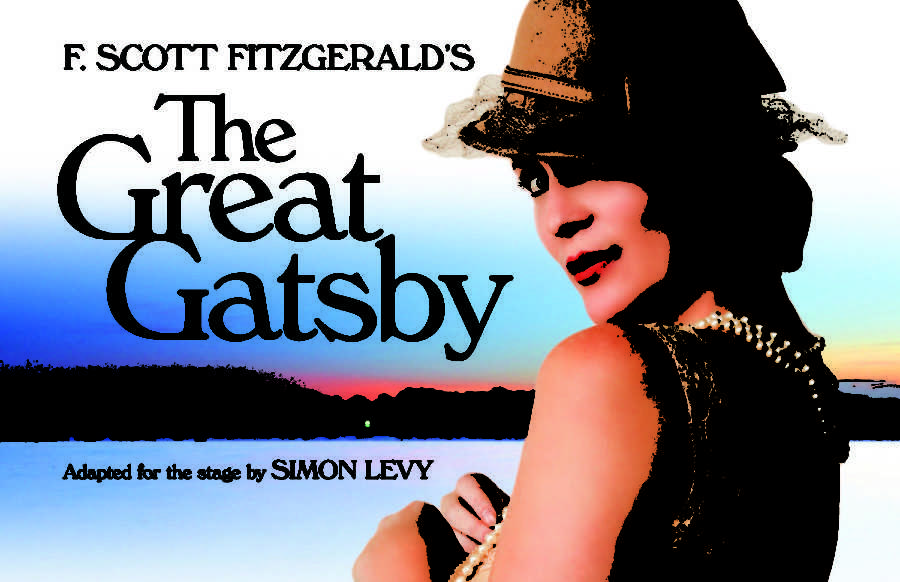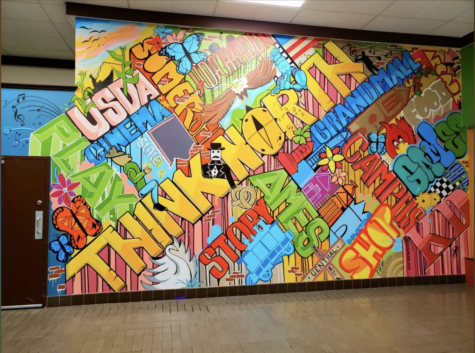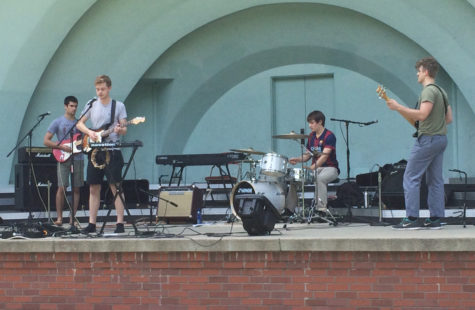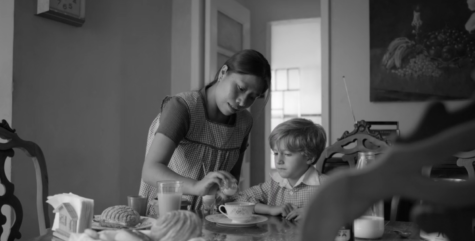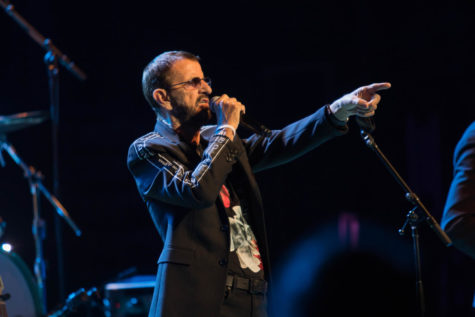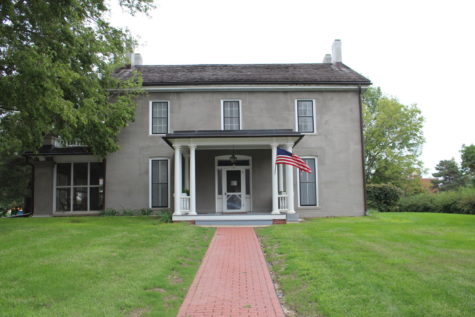‘The Great Gatsby’ play comes to Stephens Auditorium
Courtesy of the Iowa State Center
The Montana Repertory Theatre’s production of F. Scott Fitzgerald’s “The Great Gatsby” is in Ames for one night only at 7:30 p.m. Thursday, Feb. 12 at Stephens Auditorium.
February 12, 2015
Through an iconic story about love, ascending or failing to climb upon the social ladder, the Montana Repertory Theatre’s production of “The Great Gatsby,” F. Scott Fitzgerald’s most renowned novel turned into a play, comes to Ames for one night only at 7:30 p.m. Feb. 12, at Stephens Auditorium.
For many readers, Fitzgerald is considered to be one of the greatest American authors of the 20th century. Countless students and adults have read or are familiar with “The Great Gatsby” novel, or have seen Baz Luhrmann’s 2013 film adaptation with Leonardo DiCaprio as the mysterious Jay Gatsby, who is portrayed by actor Mark Kuntz in the play.
The play is a reflection of the Roaring ’20s and occupies the reckless party between World War I and the Great Depression, according to director Greg Johnson’s director’s note.
The story, narrated by character Nick Carraway, played by actor Mason Wagner, features actress Kelly Campbell as Gatsby’s muse and lost love, Daisy Buchanan, in the Montana Repertory Theatre’s production of Simon Levy’s 2012 adaptation of “The Great Gatsby.”
“Jay [Gatsby] is a man who is defined by the past and Daisy is a woman who is defined by the present,” Campbell said. “Moral questions are asked in [“The Great Gatsby”], and that’s essentially where you either condemn or love the characters. In many ways, Daisy does things that are unkind or morally unquestionable and it’s difficult to take on someone [whose] actions can be judged so easily.”
To prepare for the role of Daisy, Campbell, who lives in New York City, spent several months researching the 1920s and areas in New York City where Fitzgerald is said to have drawn inspiration.
“[The] key to Daisy is understanding that she is a product of what she comes from; that of her heart and of her soul, we are all human,” Campbell said. “Daisy is a product of a world where things define her and the walls of her life. [These things] die or break or fall apart, or sometimes you lose them and she’s a woman who experiences that.”
The story says much about life in the early ’20s and how materialism, in context of one’s social standing, relates to the American Dream.
“Daisy’s materialism is really about a girl who exists in a culture where things are handed to her, where things take on meaning, where literal objects are [viewed] and loved,” Campbell said. “[Being] given a strand of $300,000 pearls is in fact the highest form of ‘I love you’ and seeing beautiful shirts in someone’s home that you care for is a beautiful example of their success.”
Though her character desires to love and be loved by living in an idealistic, romantic world, Campbell said Daisy is owned by the reality of her life, even if she can become disillusioned by fantasy and ultimately by the American Dream.
“Arguably, she turns down the love of her life in order to stay with Tom, who is her husband, but I think she’s also a complicated person. She understands love is a very complicated thing and as much as you want something, sometimes that’s not always what’s best for your life,” Campbell said.
According to Patti Cotter, development and sponsorship manager at the Iowa State Center, the Montana Repertory Theatre concentrates on what they consider to be the great stories of American drama, so they often present classics like “The Great Gatsby.”
“There are some universal themes about striving and the American Dream, and [whether] you leave behind who you were and what your background is if you envision a different future for yourself,” Cotter said. “You don’t need to have read the book to catch on to strivings and aspirations and characters you will see in the play. There will be some really nice staging elements and depth of the characters and why the love story takes place.”
Campbell echoed Cotter’s comments.
“I think the story we’re telling is the story the book tells. The medium of theatre is the medium of humanity, [and] I think the play itself continues to ask those unending questions and continues to pose that grand story that is human in each of us.”
Advance tickets for “The Great Gatsby” are available on Ticketmaster and at the Stephens Auditorium ticket office between 10 a.m. and 4 p.m. Tickets are also going to be available on show night at the box office, according to Cotter.
Tickets for ISU students are $26 and additionally range among $20, $30, $40 and $49.
For more information, visit the Iowa State Center’s Web page for “The Great Gatsby” and the Montana Repertory Theatre’s website.

